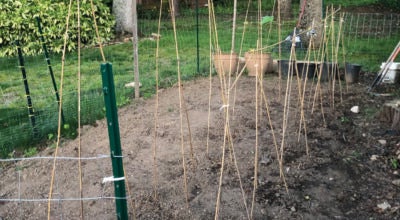OUR VIEW: Let us know to help with opioid battle
Published 6:03 pm Friday, December 13, 2019
|
Getting your Trinity Audio player ready...
|
The fact that an audience of less than 10 came to hear area professionals discuss the county’s opioid crisis should not necessarily be taken as a sign of citizen apathy about our situation.
It should be taken as a sign that the average county citizen feels helpless about the opioid situation and does not fully comprehend the plight of those affected.
The community has been having these conversations about opioids for more than a year through monthly luncheons at First Presbyterian Church and an evening gathering in early October.
We know the situation is bad. We know many key organizations in the county are working together to help those addicted and keep the drugs from reaching those who crave it. We know we have received more than $2 million in grant money to help officials tackle the problem.
We simply don’t know how to help.
One of the attendees at the October meeting asked that very question. What can we do as citizens to help this issue? The answer from the panel was to report suspicious activity and properly dispose of any prescription painkillers. Those are good suggestions and can easily be done.
This is not a problem that can be solved by the community coming together and putting canned food in a barrel or raising money for a cure. There is no cure. There are no easy answers.
We feel helpless.
We can keep ourselves informed about the situation. We can look for opportunities to help those addicted and support the families affected. We can pray for our county and this situation, but it seems like none of that is enough.
It’s hard for those who are not addicted or been around someone who is addicted to understand why someone would desire to stick a needle in their veins and periodically pump poison into their body, knowing full well they could die from it.
They risk their lives again and again to get that elusive high, to escape their reality if only for a little while. When they take too much and are brought back to life with Narcan by emergency personnel, they don’t thank the people who saved their life. They often want to fight, angry that the high they were experiencing had been interrupted.
The non-addicted can’t comprehend that level of addiction. It’s difficult for people who are not addicted to stretch their minds to understand that lifestyle. Some of us react with great compassion. Others react with an uncaring attitude that the lives of the addicted are somehow worth less than ours because they have this dependency issue.
We wonder why they don’t just stop using, get a job, raise a family and live lives like us.
It’s simply not that easy. None of those addicted wanted to grow up and live a life obsessed with finding the next high. They all had different dreams and plans of what they wanted to be that were somehow derailed by trauma or a situation that put them where they are today.
They crave the high — a high we don’t understand because most of us have had no need to go there.
Because we feel we can’t help this situation, and because we feel we don’t truly understand why anyone would ever spend money on heroin and shoot it into their veins, we stay at home.
We don’t go to meetings like the one that happened Tuesday night.
We know the situation is bad. We know it needs to get better, but we put it in the same category as the federal budget deficit and global warming — things we know are bad, but we feel like we have very little control over. Plus, Vanna White was hosting “Wheel of Fortune.”
Is that wrong? Probably. But it is reality.
As citizens, we need a job in this battle against opioids in our county.
We don’t need more information. We don’t need to be told we are No. 1 in the state for opioid overdoses again and that the bulk of them aren’t even being counted.
We need a purpose. We need to know what we can do to help.
That’s how the organizations fighting this battle can get the citizens off the sidelines and into the battle against this disease plaguing our county.
Do we need to raise money for a local treatment center? Alright let’s do it. How about volunteering at a needle exchange site? OK. Do these people need to be fed? Do they need shelter? We can make that work.
Give us a job. Let us help.



